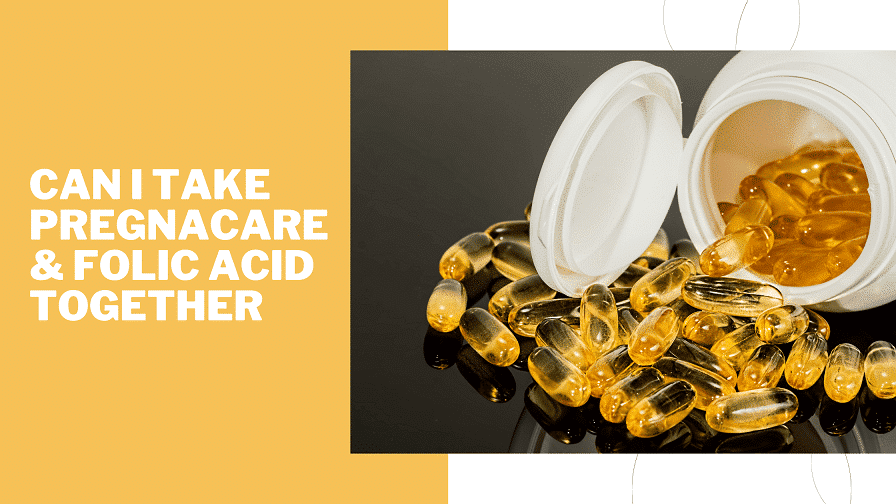Can I take Pregnacare and folic acid together? This question first came from my pregnant Aunty who wanted to know if there were going to be any complications as a result of this combination.
Unlike myself, I didn’t give her a straight answer. I had to make sure she understands the use of these supplements and somehow it helped me understand why she wanted to take pregnacare and folic acid together in the first place.
But I won’t keep you in suspense as I did to my Aunty as you may not have all the time for that, I’d give you a straight reply to your question. After which I’ll go on to make some clarifications around this question.
So I’d advice you to read everything to the end to have all your uncertainties cleared.
Can I take Pregnacare and folic acid together?
No, there’s no need to add folic acid to pregnacare since it already contains the required daily amount of 400ñg (equal to 5mg) as suggested by the UK Department of Health?
Please note that for certain women who are at greater risk, physicians may prescribe a higher dosage of folic acid.
A family history of neural tube malformations, women with diabetes, or those using anti-epilepsy medication are some of those examples.
If this is the case, Pregnacare may still be used in addition to other medications, but only after consulting with your doctor.
What is Pregnacare, exactly?
Pregnacare has been a trusted prenatal vitamin supplement for over 30 years. It’s a Vitabiotics-developed product that combines years of study on pregnancy and nutrition into a single pill.
Pregnacare is available in a variety of flavors. Pregnacare Plus, for example, is suggested as soon as you begin attempting to conceive in order to protect your nutritional requirements before you get pregnant and during your pregnancy.
Pregnacare Plus may be begun at any stage during pregnancy and continued for as long as needed.
Pregnacare Ingredients
Each pill of Pregnacare includes the following active ingredients:
- Folic Acid 400 mcg;
- Iron 17 mg;
- Magnesium
- Natural Mixed Carotenoids 2 mg;
- Niacin 20 mg;
- Selenium 30 mcg;
- Vitamin B6 10 mg;
- Vitamin D (400 IU) 10 mcg;
- Vitamin E 4 mg;
- Vitamin C 70 mg;
- Vitamin B1 3 mg;
- Vitamin B2 2 mg;
- Vitamin B12 6 mcg;
- Vitamin K 70 mcg; and so on.
In Conclusion
Despite taking prenatal vitamins, you may feel compelled to eat nothing at some time throughout your pregnancy. You could feel compelled to consume everything in sight at another time.
You are more susceptible to food-borne infections during pregnancy. Hands and surfaces should be washed often, meals should be cooked thoroughly, raw and prepared foods should be kept separate, and refrigerated foods that have been allowed to reheat up or cooked foods that have cooled outside of a refrigerator should never be eaten.


